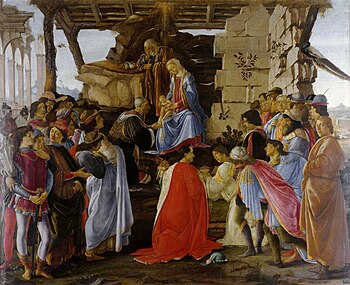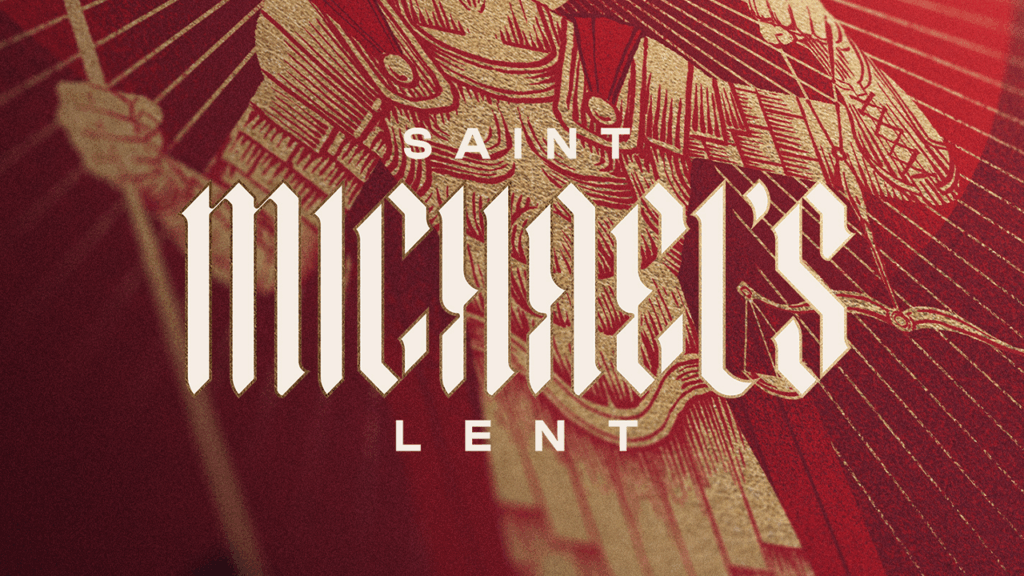Imagine your whole family gathering together to celebrate the Nativity of the Lord on December 25th. As you bow your heads to say grace, thanking the Lord for his bountiful gifts, someone pipes up, “You all know that December 25th is just a pagan festival, right?” This is a very easily held—misinformed—opinion these days. Around this time of year, social media is flooded by a myriad of uninformed and angry posts about how Christmas Day is a mere pagan festival that Christians unabashedly appropriated.
Before we explain why this appropriation theory isn’t everything it is assumed to be, let’s acknowledge that even if it were true, there is absolutely nothing wrong with the Catholic Church taking a profane festival and imposing a sacred feast. For example, May Day was historically a pagan fertility festival. The Communists appropriated May Day to commemorate the legal establishment of the eight-hour day. And in 1955, this day was selected for the celebration of St. Joseph the Worker. There is nothing wrong with this kind of appropriation. This is actually a helpful reorienting of the emphasis of the labor festival, showing that we should consider “it an honor to employ and develop by means of labor the gifts received from God” (Prayer to St. Joseph). But I digress.
There are two major theories about why December 25th was selected as the Feast of the Nativity of the Lord: the History of Religions theory and the Computation hypothesis.
History of Religions Theory
This theory essentially holds that the Christian feasts developed in response to the pagan festivals. As Christianity spread across the Mediterranean region, the pre-existing pagan religions influenced the Christian religion. The date of Christmas is very near the solstice, and almost all ancient religions were conscious of the movements of the sun and other celestial bodies in their ritual celebrations. Thus, it is unlikely that this theory is outright false in the case of Christmas.
To assess this theory as it relates to Christmas, we will need to find three things: (1) When was Christmas first celebrated on December 25? (2) What are the pagan festivals that are being celebrated at that time? (3) Is there any connection between these feasts and festivals?
The first reference to the feast of the Nativity of the Lord having been established on December 25 is found in the Chronograph of Furius Dionysius Philocalus (a calendar made for a wealthy Roman Christian named Valentinus). This calendar was composed in 354 and indicates that December 25th was associated with Christmas by 336. The calendar ran from December 25th to December 25th, making Christmas the first day of the new year.
The first entry of the list of martyrs in the chronograph is: “VIII kal. Ian. natus Christus in Betleem Iudeae.” This can be broken into two parts:
– “VIII kal. Ian.” This means: 8 days before the Kalends (first day) of January, i.e., December 25.
– “natus Christus in Betleem Iudeae.” This means: Christ was in Bethlehem of Judea.
Thus, the first time Christmas was celebrated on the 25th of December was sometime before 336.
In the early fourth century, the Romans observed their own festivals around December 25th. On the Julian Calendar, the Roman winter solstice was celebrated on December 25. Associated with this day was also the festival of Natalis Soli Invicti (birth of the unconquered sun). This festival was instituted by Emperor Aurelian in the year 275 to rejuvenate the cult of the unconquered sun. The first calendric reference to this, however, is the same chronograph that establishes December 25th as the date of Christ’s nativity.
What was the influence of the date Natalis Soli Invicti on the date of the Nativity of Jesus Christ? Modern scholars believe that the pagan festival influenced the Christians but did not determine the date of Christmas. This date may have been chosen to draw the faithful away from the profane festivities and to draw their minds to sacred things. There is no proof solid either way.
Note: While many modern bloggers claim that Christmas developed from Saturnalia, this is untrue, because the Saturnalia celebration would have ended on December 23. Thus, although Saturnalia was allegedly a time of banquets and gift exchanges, this festival is irrelevant to the discussion about the Nativity of the Lord and December 25th.
Computation Hypothesis
While the History of Religions theory is very practical, the Computation hypothesis is both mathematical the theological.
To understand this theory about December 25th, we need to understand the importance of March 25. March 25th is traditionally held to be the day that God created the cosmos. It is also the date of the Annunciation—when the angel Gabriel told Mary that she was to bear the Son of God—it is also the traditional day of Christ’s crucifixion—the first Good Friday.
Because pious tradition maintains that Christ did all things perfectly, and because the symbolic number structures popular among early church writers do not allow for the imperfections of fractions, it seems fitting that Christ would be in utero for exactly nine months. Exactly nine months after his conception would be December 25. Therefore, it is fitting that Christ was born on December 25.
Parallel to this version of the Computation hypothesis, we should note that not all Christians celebrate Christmas on December 25. Some Eastern Christians celebrate Christmas on January 6th (on the Roman calendar, this is usually the Epiphany). These Christians also do not hold March 25th as the date of the Passion; rather, they hold April 6th as the first Good Friday. Again, because fractions are deemed to be imperfections that are symbolically lacking, Christ’s death and his conception are presumed to have been on the same day. Thus, by this Eastern reckoning, there are still exactly nine months between the two celebrations.
Conclusion
Given any two theories, it is natural to put them in competition with each other; however, there is nothing in the two theories about the date of Christmas that makes them mutually exclusive. It seems possible that the Roman obsession with the sun and the winter solstice would have led Christians to institute a feast. It also seems likely that the feast of the Nativity of the Lord would have been celebrated nine months after Jesus’s annunciation and death. In either case, the tradition of celebrating the Nativity of the Lord on December 25th is a very ancient tradition.
Jacob Zepp is a graduate student at the Catholic University of America, where he is pursuing an M.A. in Liturgical Studies/Sacramental Theology. He graduated from Wyoming Catholic College, where he wrote his thesis on liturgical history and theology. Jacob has worked for Exodus since 2020. He and his wife, Anastasia, have one child.
Exodus 90 starts January 1 — sign up now for free:






